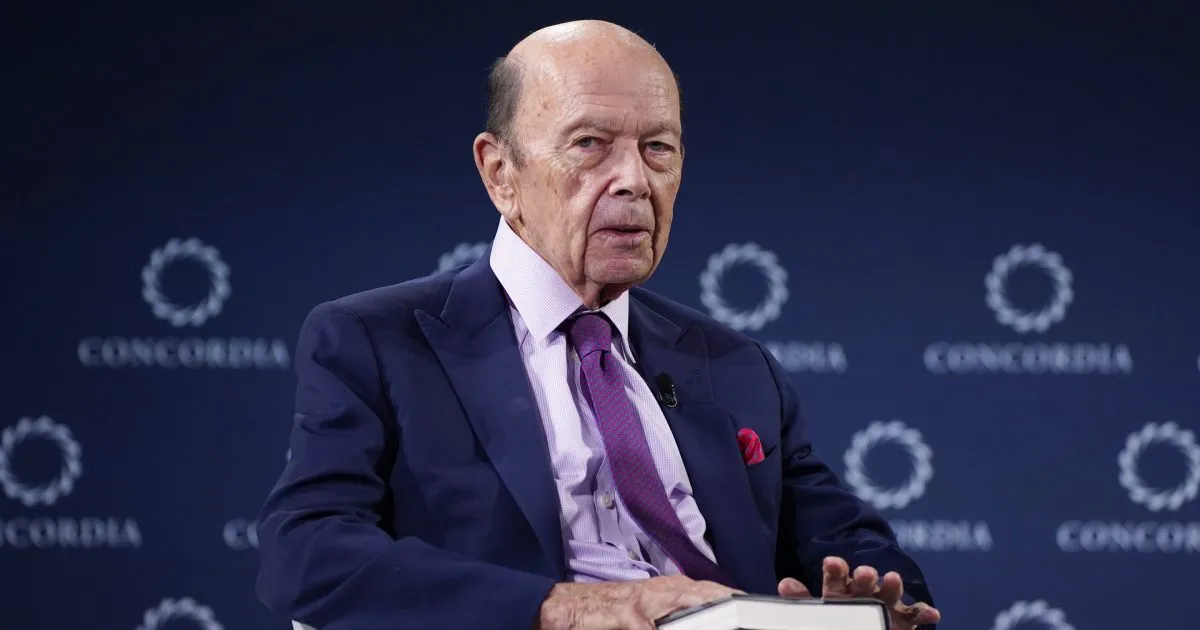
Wilbur Ross, who served as the president’s commerce secretary from 2017 to 2021, played a pivotal role in designing the initial wave of Trump’s steel and aluminum tariffs during his first term. In a recent interview with Fortune, Ross expressed that a total defeat from the Supreme Court is unlikely. However, he firmly believes that even if such a ruling occurs, Trump will not abandon his tariff strategy. “He’s too committed to the tariff to give it up,” Ross stated. “If they lose, I don’t think he’s just going to say, ‘Well, okay, it didn’t work under this law, I’ll give it up.’ He’s too invested.”
The Supreme Court is set to hear arguments on Wednesday regarding whether Trump overstepped his authority by employing emergency powers to impose tariffs on over 100 countries, affecting nearly every U.S. trading partner. According to Article 1, Section 8 of the Constitution, it is Congress, not the president, that holds the power to collect taxes and duties. Tariffs, classified as a duty, require Congressional approval for implementation.
To circumvent this requirement, the Trump administration cited the International Emergency Economic Powers Act (IEEPA) of 1977, which grants the president the authority to take regulatory action during national emergencies. However, this act does not explicitly mention duties. This is not the first instance where Trump has sought legal loopholes to act unilaterally on trade issues. In 2018, Ross assisted in crafting an exemption under Section 232 of the Trade Expansion Act to initiate the first round of tariffs on China and other nations.
Ross recalled that his team held public hearings, consulted with industries and trading partners, and established a comprehensive administrative record to anticipate potential court challenges at that time. “We were upheld throughout,” he noted. “That gave a better definition to what the government could do.” In contrast, Ross indicated that the current administration “didn’t do much” of the same preparatory work, suggesting that Trump’s legal team is now entering the Court with a weaker position. “They were in a hurry to get things going,” he added. “That’s taking a bit more risk.”
The implications of this legal battle are substantial. Trump has utilized the emergency statute to impose tariffs on goods across all hemispheres, disrupting markets for months and generating approximately $195 billion in revenue for the government, according to the Committee for a Responsible Federal Budget (CRFB). The lawsuits currently before the Supreme Court, initiated by importers and small manufacturers, argue that the president’s extensive use of emergency powers violates Congress’s authority to tax and regulate trade.
Trump’s legal team contends that the broad wording of the IEEPA, which allows presidents to “regulate” commerce during “unusual and extraordinary threats,” provides the necessary discretion for his actions. Critics, on the other hand, argue that framing trade deficits as an “emergency” stretches the meaning of the statute beyond its intended purpose.
Ross perceives the case as a toss-up but predicts that the Court will not invalidate the entire tariff program. He cautioned that overturning all the tariffs would lead to significant global turmoil. “That would be a pretty horrific decision,” he warned, explaining that it would raise complicated questions about who would be compensated: importers, consumers, or companies that transferred costs down the supply chain. He believes the justices are more likely to “cherry-pick” certain tariffs that appear politically motivated, while keeping the rest of the system in place.
As an example, Ross mentioned the 40% duty on Brazilian imports, which was added on top of an earlier 10% levy, imposed due to the prosecution of former President Jair Bolsonaro. “However bad” the prosecution of Bolsonaro is, Ross stated, “it’s hard to conceive that constitutes an emergency for the U.S.” He also expressed skepticism about tariffs on minor goods such as “brooms” or household items meeting the standards set by the IEEPA.
Despite the potential narrowing of Trump’s authority, Ross reiterated that the president is unlikely to completely abandon tariffs. “He’s too committed,” he emphasized. Instead, Trump might seek a new legal framework for his actions or push Congress to formalize the measures. Ross noted that union support for protectionist policies has complicated traditional partisan divisions; in the current political landscape, Democrats may be more inclined to oppose Trump instead of defending their usual pro-labor stance.
Known in business circles as the “King of Bankruptcy” for his work in restructuring struggling industries prior to joining the administration, Ross views the ongoing legal battle as a classic risk-reward scenario. He highlighted that the real danger lies not just in losing the case but also in creating uncertainty for companies that rely on consistent trade regulations. “Markets can adjust to good news or bad news,” he observed. “What markets have trouble with is uncertainty.”